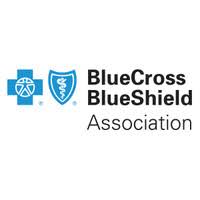
A settlement has been reached involving antitrust litigation brought against the 36 Blue Cross Blue Shield (BCBS) plans throughout the county. The litigation involved a class of BCBS subscribers who alleged that BCBS violated antitrust laws when it engaged in what is known as illegal market division.

The American Rescue Plan Act (ARPA) signed into law by the President on March 11, 2021 impacts a number of employee benefits related items. For our purposes, this blog post will focus on 4 main areas of impact: 1. COBRA subsidies; 2. Dependent Care FSA (DCA/FSA) changes; 3. Families First Coronavirus Response Act (FFCRA) changes impacting paid time off; and 4. Employee Retention Tax Credits.

As COVID-19 vaccines become more available, employers may want to consider their options with respect to incentivizing employees to get the shot(s). And as is usually the case in the world of employee benefits…employers need to proceed with caution and care as they ruminate on this matter. Here are some important considerations relative to encouraging employees to get vaccinated against COVID-19 –

The COVID-19 pandemic related CARES Act granted tax preferred status to loan repayment employee benefits. Referred to as loan repayment assistance programs – LRAPs or EAPs (educational assistance programs), this new tax preferred benefit is available through 2025 (unless extended), thanks to the Consolidated Appropriations Act (CAA) which was signed by the President toward the end of December, 2020. LRAPs/EAPs provide employers with yet another employee recruitment and retention tool, but there are important considerations.

The federal government has now provided employers with additional relaxations affecting tax preferred, Flexible Spending Accounts (FSAs), in light of the Coronavirus pandemic. These relaxations come about as a result of the passage into law of the Consolidated Appropriations Act, 2021. It’s important to note that these FSA changes are not mandatory either in total or individually. Employers may opt to amend their FSA plans to allow any or all of these provisions, but are not compelled to do so.

At present (December, 2020) there are several Covid-19 vaccines in various stages of obtaining approval. In particular, 2 are likely to hit the U.S. healthcare system in December of this year, from pharmaceutical manufacturers – Pfizer and Moderna – through a process referred to as “emergency use authorization”, or EUA. The U.S. Food and Drug Administration (FDA) can approve use of vaccines that have made their way through successful clinical trials, for emergency use, before the drugs are authorized for dispensing to the general public. This blog post addresses some of the pertinent questions relating to the Covid-19 vaccine, such as “who, how, when, why”…

The U.S. Department of Health and Human Services (HHS) announced on October 2, 2020 that it has extended the period of the national public health emergency related to Covid-19 for a third time. So, health insurance plans* may now extend the end date of any Covid-19 specific plan related cost sharing waivers and benefits to dates of service up to January 20, 2021.

A question I firmly believe is not asked and answered enough these days is – “how much should I budget for healthcare post-retirement (age 65), assuming I leave my employer (or other) plan and elect Medicare”? This includes expenses related to medical/dental/vision, care and insurance premiums, and assumes Medicare (and its various parts/pieces) is in place to protect against catastrophic type loss. Well, the answer might surprise a few folks, and is definitely something to consider if retirement is on the horizon!

Telehealth*, which is sometimes referred to as Tele-medicine, Virtual-Health, Tele-Doc, etc., has grown to become a reliable source of healthcare, particularly during the current Covid-19 pandemic. The virtually immediate, 24/7/365 access to healthcare is appealing to a variety of stakeholders, chief among them those that live in remote or rural areas. A recent source found the use of telehealth increased an impressive 4,347%, or from .17% of claim types to 7.52%, during the period from 3/2019 to 3/2020.

Although a number of Affordable Care Act (ACA) taxes/fees were repealed by the 2019 SECURE Act (see – https://smstevensandassociates.com/aca-taxes-repealed/) , the PCORI fee (also known as the Comparative Effectiveness Research Fee (CERF)) was not, and was in fact extended for an additional 10 years. So in addition to plan years ending prior to October 1, 2019, the PCORI fee will now apply to plan years ending in 2020-2029.